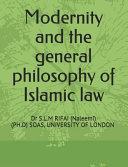
Typing Faster
Techniques To Increase Typing Speed For Office Workers: Become A Master Of Typing
Most, if not all, careers involve some computer-based work and require strong typing skills. Information technology professionals, for example, must be efficient typists to write code for computer and software programs. Accuracy is equally as important as speed, as a simple typo could result in a system-wide error. This is a true story of the author's life as a 100+ words per minute speedster. After struggling to type 35 to 45 words per minute, he developed a technique that transformed me into a 100+ words per minute speedster. Since then, he has been clocked as high as 110+ words per minute. Go on this journey with me to Washington, D.C., Baltimore, New Jersey, and New York as you read his story. And learn how to become a typing speedster.
- ISBN 10 : 9798456122490
- Judul : Typing Faster
- Sub Judul : Techniques To Increase Typing Speed For Office Workers: Become A Master Of Typing
- Pengarang : Emmitt Klay,
- Penerbit : Independently Published
- Bahasa : en
- Tahun : 2021
- Halaman : 30
- Google Book : http://books.google.co.id/books?id=p7GYzgEACAAJ&dq=intitle:typing+master&hl=&source=gbs_api
-
Ketersediaan :
Accuracy is equally as important as speed, as a simple typo could result in a system-wide error. This is a true story of the author's life as a 100+ words per minute speedster.







